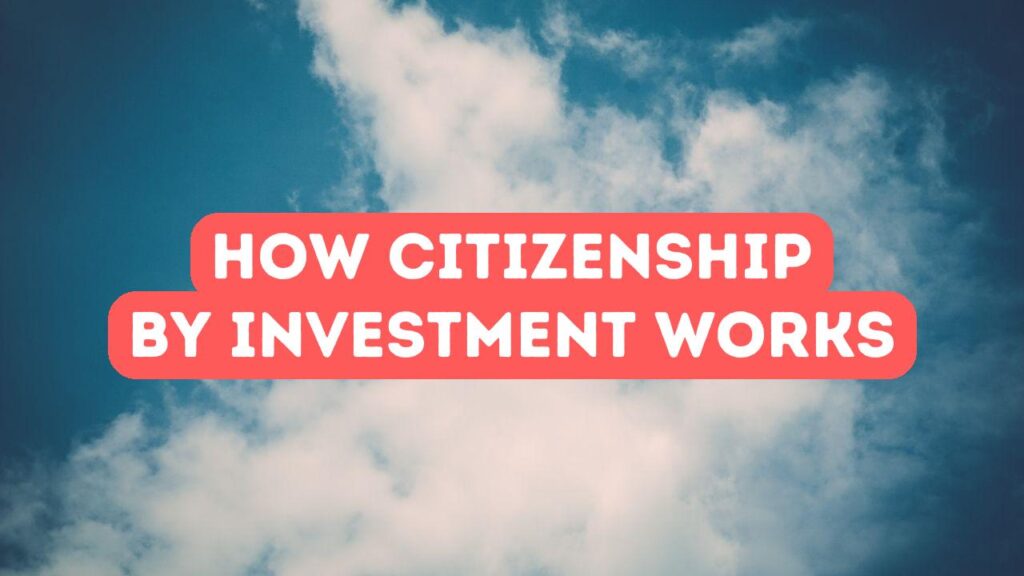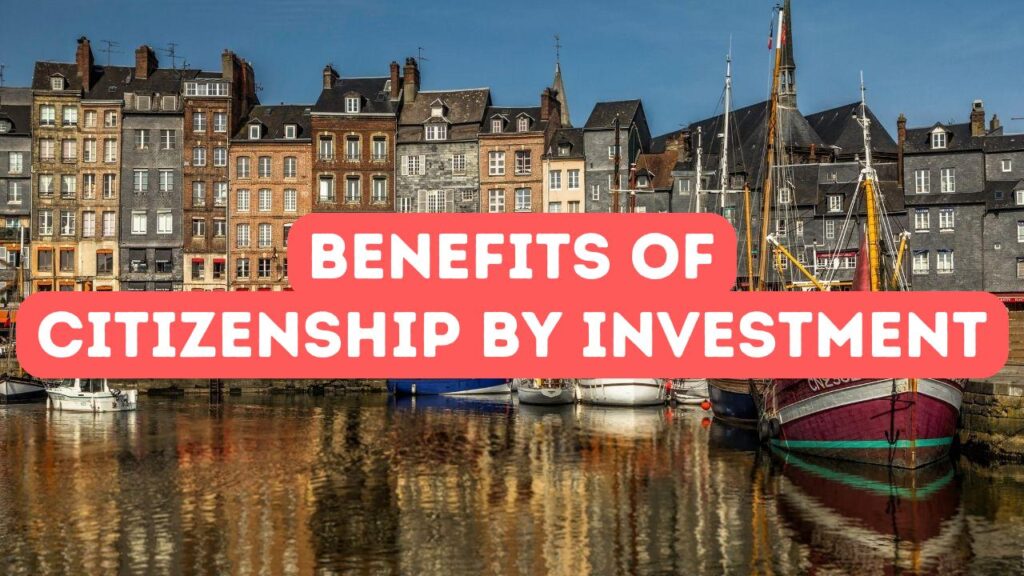In an increasingly globalized world, citizenship by investment programs are evolving to meet the nuanced demands of discerning investors and forward-thinking governments alike. As more nations recognize the economic and strategic benefits of these schemes, innovations in regulatory frameworks and program offerings are emerging, designed to bolster both the investors’ interests and the host countries’ economic landscapes. This dual alignment of objectives not only promises enhanced global mobility and economic diversification but also fosters sustainable development and international partnerships. Our latest insights delve into how these sophisticated programs are set to shape the future, providing unparalleled opportunities for those seeking new frontiers in citizenship and residency.
Global Trends and Emerging Opportunities
The global landscape of citizenship by investment programs is witnessing notable trends and emerging opportunities that savvy investors should not overlook. Countries are increasingly vying for high-net-worth individuals, resulting in more competitive and diverse offerings. For instance, Caribbean nations continue to lead with streamlined processes and compelling investment options in real estate and development funds, while European countries are enhancing their programs with lucrative tax incentives and pathways to permanent residency. As geopolitical shifts and economic uncertainties prompt individuals to seek security and stability, these evolving programs are becoming more attractive by offering not just a second passport, but also robust financial returns and strategic advantages.
In addition to competitive incentives, technological advancements are playing a pivotal role in the evolution of citizenship by investment programs. Digital transformation initiatives, such as online application portals and blockchain-based verification systems, are streamlining the application processes, making them more efficient, transparent, and user-friendly. This tech-driven approach not only reduces the bureaucratic burden but also enhances security measures, ensuring the authenticity and integrity of program applicants. Moreover, the integration of advanced analytics and AI tools allows host countries to better assess and manage investor profiles, tailoring their offerings to attract the most suitable candidates. Consequently, these technological innovations are setting new standards for the industry, driving both accessibility and trust in citizenship by investment programs.
Sustainability and ethical considerations are also becoming integral to the future of citizenship by investment programs. Governments are increasingly prioritizing investments that contribute to social and environmental goals, aligning with international standards and sustainable development objectives. This shift encourages investors to partake in projects that fund renewable energy, green infrastructure, and community development initiatives. By fostering responsible investment practices, these programs are not only enhancing their appeal but also ensuring long-term positive impacts on local communities. As a result, the convergence of economic incentives and ethical imperatives is creating a more resilient and equitable framework for global citizenship by investment, promising mutual benefits for both investors and host nations.
Evaluating the Economic Impact
Citizenship by investment programs have demonstrated significant positive economic impacts on host countries, spurring growth in multiple sectors. By attracting high-net-worth individuals, these programs inject substantial foreign capital into local economies, which can be directed towards critical areas such as infrastructure, education, and healthcare. In addition, the created demand for luxury real estate, hospitality services, and other industries stimulates job creation and boosts local businesses. Consequently, these initiatives not only enhance fiscal revenues but also create a diversified economic environment that is less reliant on traditional industries, fostering resilience to global economic fluctuations.
A crucial aspect of the economic impact is the multiplier effect, where the initial investment leads to additional economic activities beyond the direct expenditure. For instance, when new infrastructure projects are funded through foreign investments, they often require local labor, materials, and services, thus engaging numerous local suppliers and contractors. This, in turn, leads to increased household incomes and higher local consumption rates, further stimulating the economy. Additionally, by setting high investment thresholds, citizenship programs attract serious investors committed to making long-term contributions to the economy, including social ventures and philanthropic endeavors that address local community needs. This creates a virtuous cycle of reinvestment and community enhancement, ensuring that the benefits of these programs are both broad and enduring.
Moreover, beyond the immediate economic advantages, citizenship by investment programs contribute to long-term economic stability and strategic positioning on the global stage. As countries leverage these initiatives to attract a diverse portfolio of international investors, they often see an influx of specialized knowledge, advanced technologies, and innovative business practices. This not only enhances the competitive edge of local industries but also promotes international trade relations and economic alliances. By fostering a multicultural environment conducive to entrepreneurship and innovation, these programs enable host countries to diversify their economic activities and reduce dependency on volatile sectors. Ultimately, the integration of global expertise and investment under citizenship by investment schemes can catalyze sustainable economic development and elevate the host nation’s standing in the global economy.
Innovations in Program Criteria and Compliance
Innovations in program criteria and compliance are steadily revolutionizing the landscape of citizenship by investment schemes. Today, many countries are embracing more rigorous due diligence procedures and enhanced transparency to ensure the programs’ integrity and security. This shift not only protects host nations from potential risks but also strengthens the trust and confidence of international investors. Stricter background checks and ethical investment mandates are becoming standard, promoting responsible investment that aligns with global regulatory standards. Additionally, digital advancements in application processing and monitoring are streamlining the path to citizenship while maintaining robust compliance, making these programs more efficient and reliable than ever before.
Moreover, the modernized criteria are broadening the spectrum of qualifying investments, reflecting an inclusive approach to economic contributions. Beyond traditional real estate, current programs are increasingly incorporating diversified investment options such as government bonds, start-up ventures, and sustainable projects that align with environmental, social, and governance (ESG) principles. This broadening scope not only enables investors to tailor their portfolios to personal and ethical preferences but also leverages varied economic sectors that benefit the host nation holistically. Such inclusiveness ensures that the economic impact is widespread, fostering innovation, creating jobs, and promoting sustainable growth, thereby making these programs attractive to a wider demographic of global investors.
As these programs adapt to the global landscape, we see a concerted effort to integrate technology and streamline processes further. Blockchain and artificial intelligence (AI) are increasingly being harnessed to enhance security and speed up verification processes, ensuring that applications are processed with unprecedented accuracy and efficiency. This tech-driven evolution is fostering a new level of trust and reliability in citizenship by investment programs, significantly reducing fraud risks and ensuring compliance with international standards. Moreover, the emphasis on digital transformation is not only enhancing the user experience for applicants but also enabling host countries to efficiently manage and monitor the influx of new citizens, thus optimizing the economic and societal benefits derived from these investment initiatives. Ultimately, these advancements are setting a new benchmark for future citizenship by investment schemes, marrying innovation with integrity to meet the demands of a rapidly changing global marketplace.







